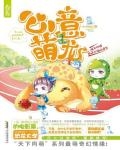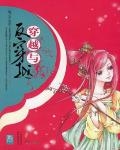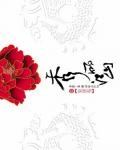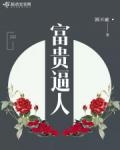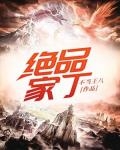Volume 2: Soaring! The Overlord of the Region Chapter 275 Sun Shenxing's Choice
The Ming Dynasty's imperial examination was divided into three sessions.
The first test was about the interpretation of classics, the second was about poetry, and the third was about policy essays. Starting from the ninth day of the second month, each test lasted three days, so there were nine days in total.
In Zhu Youdong's view, the economy of the Ming Dynasty had already developed to a very high level. As the saying goes, the economic base determines the superstructure, and the Ming Dynasty's official selection system had long been due for a major overhaul.
Unfortunately, he is still the crown prince, so some things are still inconvenient to do. Moreover, the economic reform of the Ming Dynasty has just started, so it is not appropriate to change the imperial examination system.
Well, it’s not convenient to make big changes, but His Royal Highness the Crown Prince’s prestige is growing day by day, so small changes can still be made.
Before this joint examination, Emperor Wanli clearly stated that Zhu Youdong would be in charge of this joint examination and the following palace examination. So Zhu Youdong approached Wu Daonan and said : "Well, Grand Master of the Imperial Clan, I want to make some minor adjustments to the scoring criteria for the joint examination."
According to the analysis of Professor Tsurunari Hisaaki of Fukuoka University in Japan, “The Standards for Judging the Examination Papers in the Ming Dynasty”, the examination started on February 9, and some candidates who answered quickly were able to hand in their papers on the same day, and then the examiners could see part of the papers that night. The second examination started on February 12, and at that time, the examiners might still have some papers from the first examination in their hands.
Therefore, Professor He Cheng concluded that the examiners had sufficient time and energy to carefully grade the papers of the first exam. The examiners were the most careless in grading the papers of the second exam - the papers of the first exam were pressed, and the third exam was about to begin.
As for the third exam paper, the examiners didn’t have the fourth exam paper to urge them to finish. But you can’t help but think that the examiners had been locked in the exam room for a long time and worked intensively for nine days!
Those who can serve as examiners in the imperial examinations must be at least 40 years old, right? Such a large group of middle-aged and elderly people work in a boring environment for nine consecutive days at a high intensity. How can they have the patience and energy to carefully read the policy papers? Basically, they just scan through the ten lines at a glance, and then give an impression and divide the papers - they have been locked up for almost a month (examiners have to move into the examination room before the candidates, and can only be released after the papers are marked). It is more appropriate to finish the work at hand as soon as possible, go home to take a shower or go to a brothel to have fun!
Therefore, although the Ming Dynasty's joint examinations have always emphasized that only those who have performed very well in all three examinations can be selected as Jinshi, in fact, over the past two hundred years, both examiners and scholars have been very clear: the first examination, the interpretation of the classics, determines success or failure.
This is something Zhu Youdong cannot accept.
In the eyes of time travelers, whether it is the interpretation of scriptures or poetry, it is just a matter of personal literary accomplishment. In the Ming Dynasty, when eight-part essays were popular, there might not even be much examination of literary accomplishment.
Speaking of which, what can truly test a person’s actual problem-solving ability in this imperial examination is the policy essay!
But the policy essay was scheduled for the third round! It was the third round that exhausted all the candidates and examiners!
So Zhu Youdong’s fine-tuning was very simple: change the content of the first session to policy discussion.
Wu Daonan, the current Minister of Rites, who was known for being soft and having no stance at all, agreed after a symbolic protest.
As soon as Wu Daonan took a step back, Zhu Youdong immediately followed up: "Grand Master of the Imperial Clan, I will set the questions for the policy essays in this imperial examination."
After another symbolic protest, the soft Daonan agreed.
Then, on February 9, when the first examination started, Sun Chuanting, Song Yingxing and Song Yingsheng felt relieved after receiving the examination questions.
Of course, as a time traveler, Zhu Youdong’s test questions are definitely different from the policy essay questions of the previous Ming Dynasty.
In this policy paper, he gave a large amount of material, listing the various changes and impacts that the progress of production technology in China over thousands of years has brought to society. Then he raised the question: If there is a machine that can increase the production efficiency of weavers by dozens or even hundreds of times, what changes will it bring to the Ming Dynasty, and how should the country plan in advance to cope with these changes.
…
That evening, when the chief examiner of the examination, Sun Shenxing, then Vice Minister of Rites, was inspecting the examination room, he was surprised to find that no candidate had handed in his paper.
Ordinary candidates, of course, needed time to think and adapt because of the change in the order of subjects and the novelty of the policy essay questions. As for the three who got the questions that Zhu Youdong had missed, they had already been told: Never hand in your paper too early!
Then, the examiners headed by Sun Shenxing did not receive the first test paper until the morning of February 11.
The examiners, who had been bored for two days , suddenly gathered together to look at the first answer sheet of this examination.
Of course, the examinees' names were blocked, and the examiners were not interested in this. But after reading the contents , it caused great controversy among the examiners.
Because in this article, the solution proposed for the social problems brought about by the rapid increase in productivity is: turn your attention outward and let the vassal states around the Ming Dynasty become the Ming Dynasty's raw material base and sales market.
The social changes brought about by the rapid increase in productivity described in the answer sheet did not cause much resistance from the examiners: we are all old bureaucrats, and if there really is such a machine, everyone can imagine the social changes it will cause. However, this candidate's inclination on how to solve this problem is somewhat problematic.
The literati of the Ming Dynasty were not the cynics of the Qing Dynasty. They might be conservative, but they were not closed-minded. Their ideas might be old-fashioned, but they were not pedantic. Therefore, they had no psychological burden to let people from other countries die in exchange for the comfort of the Ming Dynasty.
The examiners were arguing about the fact that if you do this, you have to use a sword to clear the way. This is what most examiners don't like.
"I think that although this article has substance, the writing style is still a little immature and too sharp. So, I'd better not accept it. Let this boy go back to study for a few more years and improve his Qi-cultivation skills. This way, we can also protect talents for the country."
"No, I think that although he is very aggressive, he is also brave enough to take on responsibilities. Everyone, after His Highness became the regent, he has been making adjustments to the many problems of our Ming Dynasty in the past few years. At this time, we need people like this to fight for the country."
"Well... no, it's not possible after all. I still stick to my previous opinion and won't take it."
"Young Master, we are still divided over the issue. Please let the examiner make the decision."
"Hmm." Sun Shenxing picked up the answer sheet, read it carefully again, and fell into long thought.
As a native of Changzhou, South Zhili, he is one of the few Donglin Party members in the Ming Dynasty court and the current leader of the Donglin Party in the court.
After Zhu Youdong's three heavy blows (newspaper case, alienation of the royal family case, and hook kiss case), the Donglin Party's power in the court has been weakened to the extreme. Not to mention fighting against the Zhejiang Party, even compared with the Xuan Party and the Qi Party, it is far inferior.
As a court official, the reason why he was able to escape two major cases in succession is a bit ridiculous: because of his background, the core members of the Donglin Party did not trust him very much! So they did not call him when they were doing big things.
His maternal grandfather was Tang Shunzhi, a Confucian master, military strategist, essayist, mathematician, and hero in the anti-Japanese war who possessed true scholar-official qualities.
Because of this reason, Sun Shenxing was one of the few people in the Donglin Party who was willing to get close to military personnel and able to get practical work done. It was a miracle that such a guy could get into the Donglin Party, so how could he possibly be liked by the former bigwigs of the Donglin Party?
As for Zhu Youdong, no matter how bad the Donglin Party was, it could not be completely wiped out - otherwise who would contain the Zhejiang Party? Who would be the opposition?
Therefore, Sun Shenxing, a non-core member of the Donglin Party, was promoted rapidly because of the decline of Donglin. Not only did he become the Minister of Rites, but he also became the chief examiner of this session of the imperial examination - the chief examiner was the teacher of all the Jinshi of this session!
After thinking over and over for a long time, Sun Shenxing raised his right hand, and immediately another examiner handed him a brush soaked in ink.
Then Sun Shenxing directly wrote on the answer sheet: Accurate!

